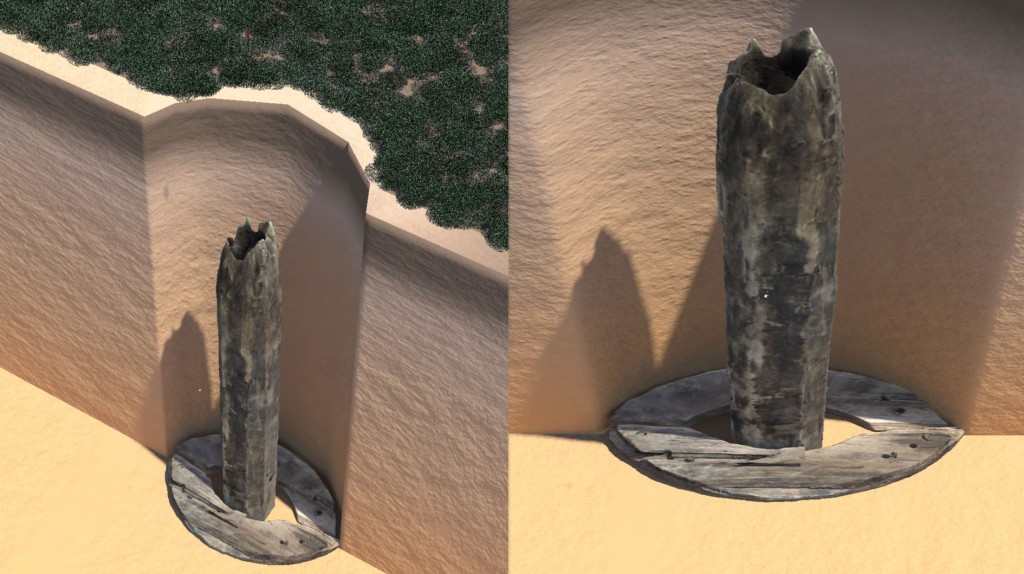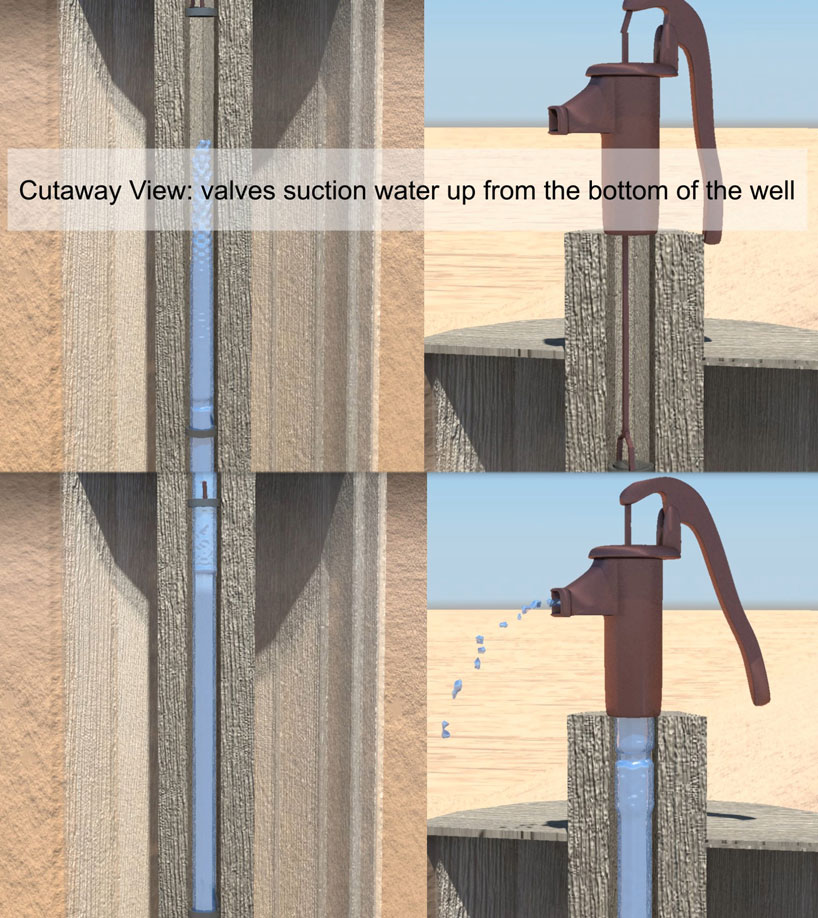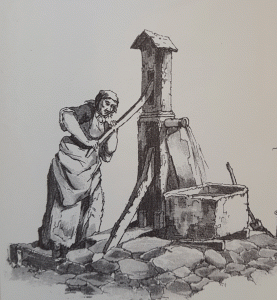Featured Fragment – The Armstrong-Rogers Well Pump
By Joseph Blondino and Kerry S. Gonzalez
During a data recovery at the Armstrong-Rogers site, a mid-eighteenth through late-nineteenth century domestic site in Delaware, Dovetail Cultural Resource Group excavated a unique well pump. The remains included several wooden components used to draw water from the well. The octagonal-shaped pump shaft or tube consisted of a hickory log approximately 7.5 feet long by 1 foot in diameter with a hole bored through its center. Two wooden “collars” roughly elliptical in shape with a hole in the center to hold the pump tube sat at the bottom of the well shaft and served as the pump seating, keeping the pump tube in place. The pump was operated by a lever that raised and lowered a valve through the pump tube which drew water through the lower portion of the wooden tube. Each pump would bring more and more water until a near-continuous flow could be easily maintained.
The imagery shown in this post displays the wooden pump positioned in the well shaft and how water was pumped through the well to reach the spigot at the ground surface. These marvelous illustrations were created by Brian Crane of Versar and sponsored by the Delaware Department of Transportation (DelDOT) as part of the DelDOT Route 301 study. DelDOT has been a notable proponent of alternative studies to thoroughly understand the materials that have resulted from the Route 301 work. This joint effort between DelDOT, Dovetail and Versar is a great example of an increased quality and quantity of data that can come from archaeologists working together. It also highlights how understanding historic technology can be a crucial component when interpreting archaeological material.

Illustration by Brian Crane, Versar. Sponsored by the Delaware Department of Transportation (DelDOT)

Illustration by Brian Crane, Versar. Sponsored by the Delaware Department of Transportation (DelDOT)
Any distributions of blog content, including text or images, should reference this blog in full citation. Data contained herein is the property of Dovetail Cultural Resource Group and its affiliates.

